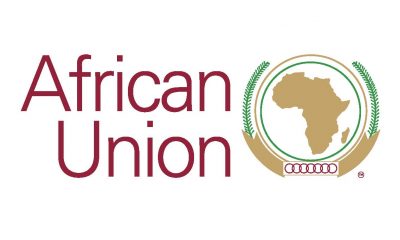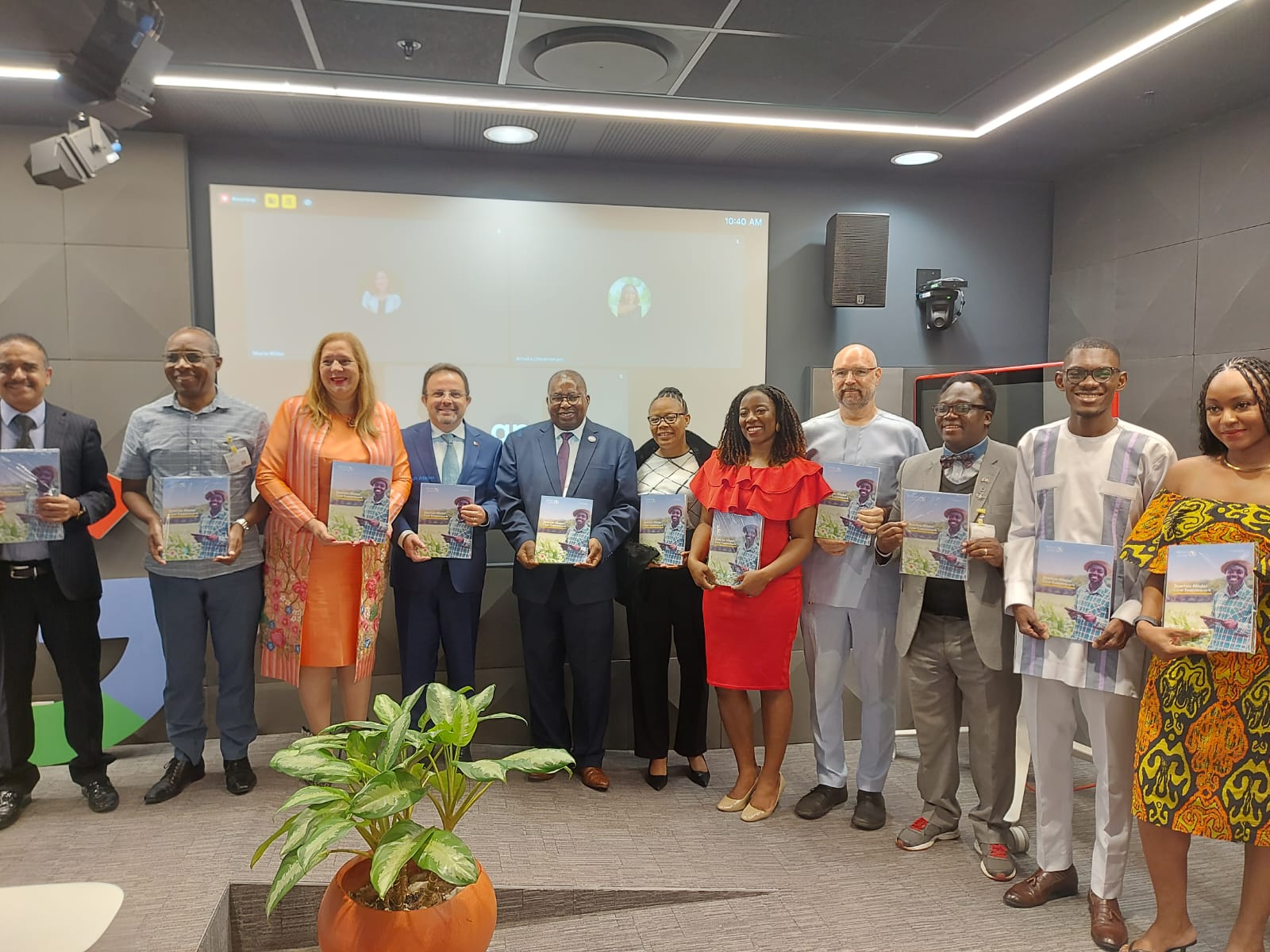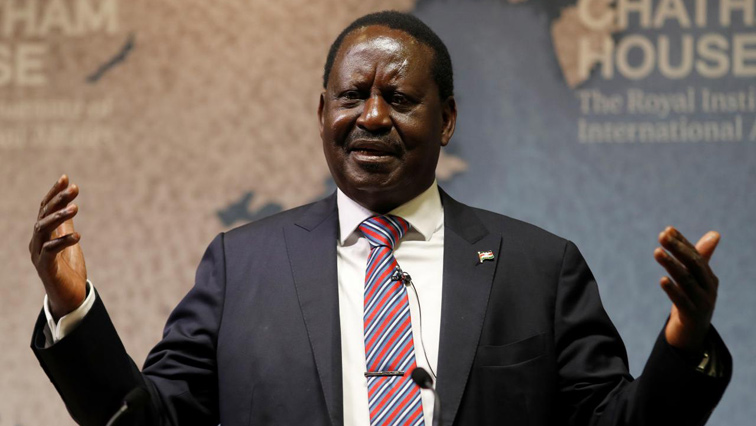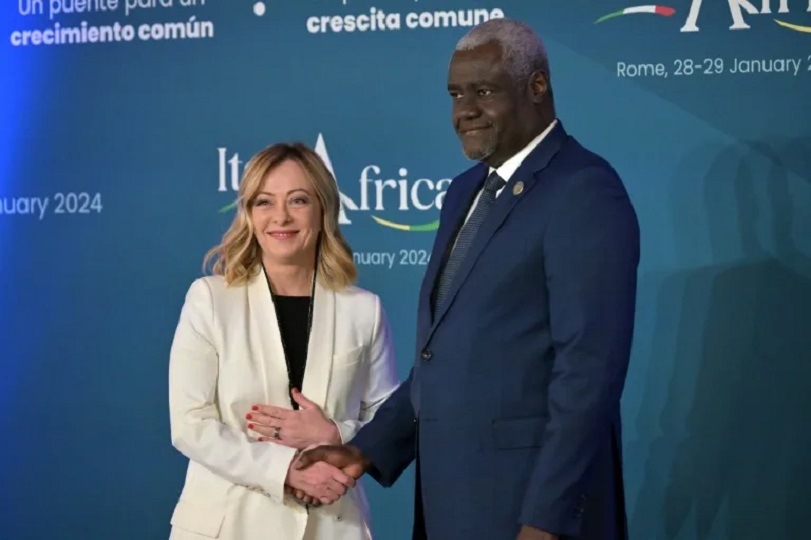World
African Union Developing 10-Year Comprehensive Agriculture Programme
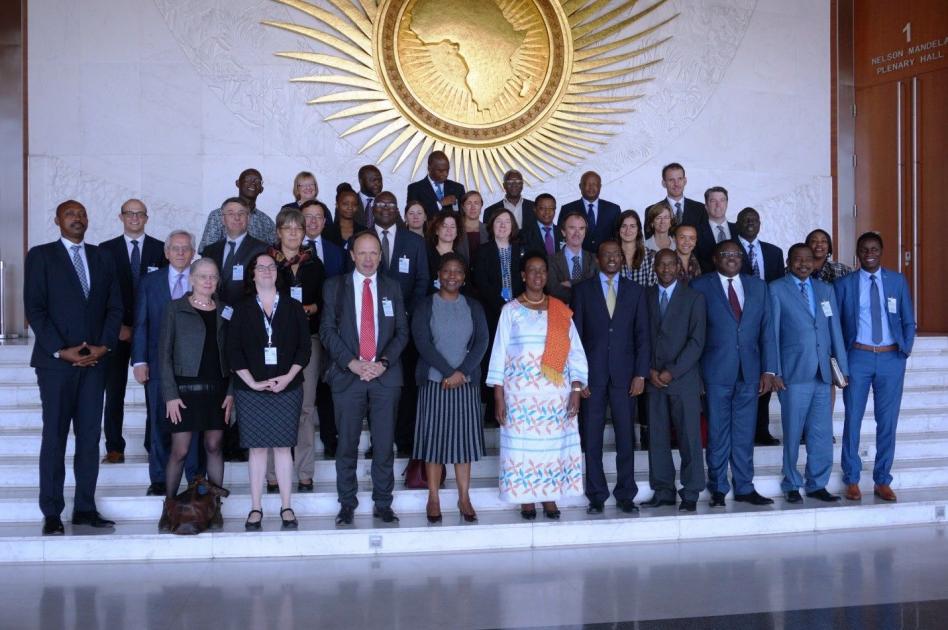
By Kestér Kenn Klomegâh
For three working days, 9th –11th January 2025, in the Speke Resort Conference Centre in Uganda’s capital, Kampala, the African Union Commission (AUC) will host the Extraordinary Summit on the Post-Malabo Comprehensive Africa Agriculture Development Programme (CAADP). This Summit is supported by the Government of Uganda.
The event is organized jointly by the African Union Commission, Department of Agriculture Rural Development Blue Economy and Sustainable Environment (DARBE) and African Union Development Agency- New Partnership African Development (AUDA-NEPAD).
Dignitaries will deliver statements on the consideration of the Kampala Declaration, the Comprehensive African Agriculture Development Programme (CAADP) Ten-Year Strategy and Action Plan (2026-2035); the draft Statute of Africa Food Safety Agency; and the report on selection of African Union Centres of Excellence for Research and Training in Fisheries, Aquaculture, Aquatic Biodiversity Conservation and Ecosystems Management.
The Objectives of the Summit:
The convening of the extraordinary session of the Assembly is specifically to:
Endorse the draft Kampala CAADP Declaration. The draft declaration provides a vision for transforming Africa’s Agrifood Systems for the period: 2026-2035.
Endorse Ten-Year CAADP Strategy and Action Plan: 2026-2035. This plan provides details on how to achieve the goals and targets in the draft Kampala CAADP Declaration.
Risk Management and Mitigation
The post-Malabo CAADP strategy will span ten years, from 2626 to 2035. Given the longtime horizon, many risks and uncertainties could affect the strategic positioning of the agri-food systems transformation agenda to deliver on its goals. There are external socioeconomic, environmental, and other shocks that might come up, which will demand that the strategy be agile enough to respond to such unforeseen developments. The strategy will therefore call for institutional adaptation to changes in a complex and rapidly changing context. Major risks and uncertainties will need to be identified and outlined together with their respective mitigation actions.
Key interventions to ensure better risk management include:
- Identify potential risks (e.g., political instability, climate change) and put in place mechanisms for dealing with or mitigating such risks
- Identify health crises, including pandemics or epidemics, early and develop mechanisms for minimizing negative impacts
- Identify and address gender inequalities or biases and restrictive social norms that may limit the access of women and youth to education, resources, and decision making processes thereby preventing them from fully participating in and benefiting from agricultural activities or initiatives
- Invest in durable peace because it is essential for building resilient agri-food systems (from the local to global levels) and affects agricultural production, food security, market access, investment, resilience, and social cohesion. Establishing and maintaining peace is critical for enabling long-lasting investment to unlock the full potential of Africa’s agri-food systems. The Kampala CAADP Declaration will need to emphasize establishing conflict-resolution mechanisms at the community level while strengthening local markets and value chains.
- Promote household insurance and other coping mechanisms that can help mitigate the impact of health shocks on livelihoods. These mechanisms will be key to enhancing the resilience of communities.
- Enhance public health surveillance systems to detect and respond to health threats, including of zoonotic origin. It will also be important to strengthen food safety measures to prevent health shocks related to foodborne diseases.
- Financial resources will be required to achieve the Kampala CAADP declaration’s resilience objectives. Specifically, households need access to credit, savings, and other financial instruments that help them weather economic shocks.
- Food price monitoring: It will be necessary to implement policies that stabilize food markets and prevent price volatility to ensure a steady supply of food and agricultural inputs.
- Capacities development of African governments to formulate resilience-focused policy measures is a critical step and a priority for the CAADP Strategy and Action Plan. Mainstreaming resilience-focused policies will trickle down to operational actions led by various stakeholders towards sustainable agri-food systems.
Background: The Comprehensive Africa Agriculture Development Programme (CAADP) has been crucial in driving agricultural transformation across Africa since its inception in 2003. The program is aimed at increasing food security and nutrition, reducing rural poverty, creating employment, and contributing to economic development while safeguarding the environment. CAADP aims for a 6% annual growth rate in the agricultural sector, with African Union member states allocating at least 10% of their budgets to agriculture.
Building on the Maputo Declaration (2003-2013), the 2014 Malabo CAADP Declaration renewed commitment to CAADP and established ambitious goals for 2025, including eradicating hunger, reducing malnutrition, tripling intra-African trade, and building resilience of livelihoods and production systems. The Malabo Declaration underscored the importance of mutual accountability through agricultural biennial reviews and recognized the essential role of related sectors like infrastructure and rural development. During the Thirty-Seventh Ordinary Session of the African Union Assembly in February 2024, the Heads of State and Government expressed concern that the continent is not on track to meet the Malabo CAADP goals and targets by 2025. This has spurred a call for the development of a post-Malabo CAADP agenda to build resilient agri-food systems.
It is in this context that the An Extraordinary Summit of The African Union Assembly of Heads of States and Governments is scheduled for January 9th to 11th 2025 in Kampala, Uganda, to deliberate on the post-Malabo CAADP agenda to consider the draft Ten-Year CAADP Strategy and Action Plan with its associated draft Kampala Declaration on Advancing Africa’s Inclusive Agrifood Systems Transformation for Sustainable Economic Growth and Shared Prosperity.
Format and Structure of the Summit: The Extraordinary Summit will start with a one-day meeting of the Ministers responsible for Agriculture, Rural Development Water and Environment on the 9th of January 2025, to be followed by Joint Session of the Ministers of Agriculture, Rural Development, Water and Environment together with the Ministers of Foreign Affairs on the 10th of January 2025.
The sessions will feature two presentations the: i) draft CAADP Ten-Year Strategy and Action Plan (2026-2035); ii) draft Kampala CAADP Declaration and both will be done in closed sessions. The Ministerial sessions will be structured to encourage inclusive and interactive conversations and dialogue among the Ministers, as well as between the Ministers and key strategic stakeholders. At the same time, it will enable the Ministers to review the strategic documents presented to them for their consideration and recommendations to the Assembly.
The Assembly of Heads of State and Government will convene on the 11th of January 2025 to endorse the: i) draft Ten-Year CAADP Strategy and Action Plan (2026-2035); ii) draft Kampala CAADP Declaration.
Participants: The Extraordinary Summit on the CAADP Agenda will be attended by Heads of States and Government of the African Union Member State, Ministers of Foreign Affairs, PRCs, Ministers and Experts in-Charge of Agriculture (forestry, fisheries, crops and livestock), Rural Development, Water and Environment, RECs, Youth, Women, Non-State Actors, Media, Academia and Development Partners
African Union: The AU is guided by its vision of “An Integrated, Prosperous and Peaceful Africa, driven by its own citizens and representing a dynamic force in the global arena.” The African Union (AU) is a continental body consisting of the 55 member states that make up the countries of the African Continent. To ensure the realisation of its objectives and the attainment of the Pan African Vision of an integrated, prosperous and peaceful Africa, Agenda 2063 was developed as a strategic framework for Africa’s long term socio-economic and integrative transformation. Agenda 2063 calls for greater collaboration and support for African led initiatives to ensure the achievement of the aspirations of African people.
World
African Visual Art is Distinguished by Colour Expression, Dynamic Form—Kalalb

By Kestér Kenn Klomegâh
In this insightful interview, Natali Kalalb, founder of NAtali KAlalb Art Gallery, discusses her practical experiences of handling Africa’s contemporary arts, her professional journey into the creative industry and entrepreneurship, and also strategies of building cultural partnership as a foundation for Russian-African bilateral relations. Here are the interview excerpts:
Given your experience working with Africa, particularly in promoting contemporary art, how would you assess its impact on Russian-African relations?
Interestingly, my professional journey in Africa began with the work “Afroprima.” It depicted a dark-skinned ballerina, combining African dance and the Russian academic ballet tradition. This painting became a symbol of cultural synthesis—not opposition, but dialogue.
Contemporary African art is rapidly strengthening its place in the world. By 2017, the market was growing so rapidly that Sotheby launched its first separate African auction, bringing together 100 lots from 60 artists from 14 foreign countries, including Algeria, Ghana, Mali, Nigeria, Senegal, and others. That same year during the Autumn season, Louis Vuitton Foundation in Paris hosted a major exhibition dedicated to African art. According to Artnet, sales of contemporary African artists reached $40 million by 2021, a 434% increase in just two years. Today, Sotheby holds African auctions twice a year, and in October 2023, they raised $2.8 million.
In Russia, this process manifests itself through cultural dialogue: exhibitions, studios, and educational initiatives create a space of trust and mutual respect, shaping the understanding of contemporary African art at the local level.
Do you think geopolitical changes are affecting your professional work? What prompted you to create an African art studio?
The international context certainly influences cultural processes. However, my decision to work with African themes was not situational. I was drawn to the expressiveness of African visual language—colour, rhythm, and plastic energy. This theme is practically not represented systematically and professionally in the Russian art scene.
The creation of the studio was a step toward establishing a sustainable platform for cultural exchange and artistic dialogue, where the works of African artists are perceived as a full-fledged part of the global cultural process, rather than an exotic one.
To what extent does African art influence Russian perceptions?
Contemporary African art is gradually changing the perception of the continent. While previously viewed superficially or stereotypically, today viewers are confronted with the depth of artistic expression and the intellectual and aesthetic level of contemporary artists.
Portraits are particularly impactful: they allow us to see not just an abstract image of a “continent,” but a concrete personality, character, and inner dignity. Global market growth data and regular auctions create additional trust in African contemporary art and contribute to its perception as a mature and valuable movement.
Does African art reflect lifestyle and fashion? How does it differ from Russian art?
African art, in my opinion, is at its peak in everyday culture—textiles, ornamentation, bodily movement, rhythm. It interacts organically with fashion, music, interior design, and the urban environment. The Russian artistic tradition is historically more academic and philosophical. African visual art is distinguished by greater colour expression and dynamic form. Nevertheless, both cultures are united by a profound symbolic and spiritual component.
What feedback do you receive on social media?
Audience reactions are generally constructive and engaging. Viewers ask questions about cultural codes, symbolism, and the choice of subjects. The digital environment allows for a diversity of opinions, but a conscious interest and a willingness to engage in cultural dialogue are emerging.
What are the key challenges and achievements of recent years?
Key challenges:
- Limited expert base on African contemporary art in Russia;
- Need for systematic educational outreach;
- Overcoming the perception of African art as exclusively decorative or ethnic.
Key achievements:
- Building a sustainable audience;
- Implementing exhibition and studio projects;
- Strengthening professional cultural interaction and trust in African
contemporary art as a serious artistic movement.
What are your future prospects in the context of cultural diplomacy?
Looking forward, I see the development of joint exhibitions, educational programs, and creative residencies. Cultural diplomacy is a long-term process based on respect and professionalism. If an artistic image is capable of uniting different cultural traditions in a single visual space, it becomes a tool for mutual understanding.
World
Ukraine Reveals Identities of Nigerians Killed Fighting for Russia

By Adedapo Adesanya
The Ukrainian Defence Intelligence (UDI) has identified two Nigerian men, Mr Hamzat Kazeem Kolawole and Mr Mbah Stephen Udoka, allegedly killed while fighting as Russian mercenaries in the war between the two countries ongoing since February 2022.
The development comes after Russia denied knowledge of Nigerians being recruited to fight on the frontlines.
Earlier this week, the Russian Ambassador to Nigeria, Mr Andrey Podyolyshev, said in Abuja that he was not aware of any government-backed programme to recruit Nigerians to fight in the war in Ukraine.
He said if at all such activity existed, it is not connected with the Russian state.
However, in a statement on Thursday, the Ukrainian Defence released photographs of Nigerians killed while defending Russia.
“In the Luhansk region, military intelligence operatives discovered the bodies of two citizens of the Federal Republic of Nigeria — Hamzat Kazeen Kolawole (03.04.1983) and Mbah Stephen Udoka (07.01.1988),” the statement read.
According to the statement, both men served in the 423rd Guards Motor Rifle Regiment (military unit 91701) of the 4th Guards Kantemirovskaya Tank Division of the armed forces of the Russian Federation.
UDI said that they signed contracts with the Russian Army in the second half of 2025 – the deceased Mr Kolawole on August 29 and Mr Udoka on September 28.
“Udoka received no training whatsoever — just five days later, on October 3, he was assigned to the unit and sent to the temporarily occupied territories of Ukraine,” the report read.
It added that no training records for Mr Kolawole have been preserved; however, it is highly likely that he also received no military training, but his wife and three children remain in Nigeria.
Both Nigerians, the report added, were killed in late November during an attempt to storm Ukrainian positions in the Luhansk region.
“They never engaged in a firefight — the mercenaries were eliminated by a drone strike,” UDI stated, warning foreign citizens against travelling to the Russian Federation or taking up any work on the territory of the “aggressor state”.
“A trip to Russia is a real risk of being forced into a suicide assault unit and, ultimately, rotting in Ukrainian soil,” the statement read.
In an investigation earlier this month, CNN reported that hundreds of African men have been enticed to fight for Russia in Ukraine with the promise of civilian jobs and high salaries. However, the media organisation uncovered that they are being deceived or sent to the front lines with little combat training.
CNN said it reviewed hundreds of chats on messaging apps, military contracts, visas, flights and hotel bookings, as well as gathering first-hand accounts from African fighters in Ukraine, to understand just how Russia entices African men to bolster its ranks.
World
Today’s Generation of Entrepreneurs Value Flexibility, Autonomy—McNeal-Weary

By Kestér Kenn Klomegâh
The Young African Leaders Initiative (YALI) is the United States’ signature step to invest in the next generation of African leaders. Since its establishment in 2010 by Obama administration, YALI has offered diverse opportunities, including academic training in leadership, governance skills, organizational development and entrepreneurship, and has connected with thousands of young leaders across Africa. This United States’ policy collaboration benefits both America and Africa by creating stronger partnerships, enhancing mutual prosperity, and ensuring a more stable environment.
In our conversation, Tonya McNeal-Weary, Managing Director at IBS Global Consulting, Inc., Global Headquarters in Detroit, Michigan, has endeavored to discuss, thoroughly, today’s generation of entrepreneurs and also building partnerships as a foundation for driving positive change and innovation in the global marketplace. Here are the excerpts of her conversation:
How would you describe today’s generation of entrepreneurs?
I would describe today’s generation of entrepreneurs as having a digital-first mindset and a fundamental belief that business success and social impact can coexist. Unlike the entrepreneurs before them, they’ve grown up with the internet as a given, enabling them to build global businesses from their laptops and think beyond geographic constraints from day one. They value flexibility and autonomy, often rejecting traditional corporate ladders in favor of building something meaningful on their own terms, even if it means embracing uncertainty and financial risk that previous generations might have avoided.
And those representing the Young African Leaders Initiative, who attended your webinar presentation late January 2026?
The entrepreneurs representing the Young African Leaders Initiative are redefining entrepreneurship on the continent by leveraging their unique perspectives, cultural heritage, and experiences. Their ability to innovate within local contexts while connecting to global opportunities exemplifies how the new wave of entrepreneurs is not confined by geography or conventional expectations.
What were the main issues that formed your ‘lecture’ with them, Young African Leaders Initiative?
The main issues that formed my lecture for the Young African Leaders Initiative were driven by understanding the importance of building successful partnerships when expanding into the United States or any foreign market. During my lecture, I emphasized that forming strategic alliances can help entrepreneurs navigate unfamiliar business environments, access new resources, and foster long-term growth. By understanding how to establish strong and effective partnerships, emerging leaders can position their businesses for sustainable success in global markets. I also discussed the critical factors that contribute to successful partnerships, such as establishing clear communication channels, aligning on shared goals, and cultivating trust between all parties involved. Entrepreneurs must be proactive in seeking out partners who complement their strengths and fill gaps in expertise or resources. It is equally important to conduct thorough due diligence to ensure that potential collaborators share similar values and ethical standards. Ultimately, the seminar aimed to empower YALI entrepreneurs with practical insights and actionable strategies for forging meaningful connections across borders. Building successful partnerships is not only a pathway to business growth but also a foundation for driving positive change and innovation in the global marketplace.
What makes a ‘leader’ today, particularly, in the context of the emerging global business architecture?
In my opinion, a leader in today’s emerging global business architecture must navigate complexity and ambiguity with a fundamentally different skill set than what was previously required. Where traditional leadership emphasized command-and-control and singular vision, contemporary leaders succeed through adaptive thinking and collaborative influence across decentralized networks. Furthermore, emotional intelligence has evolved from a soft skill to a strategic imperative. Today, the effective modern leader must possess deep cross-cultural intelligence, understanding that global business is no longer about exporting one model worldwide but about genuinely integrating diverse perspectives and adapting to local contexts while maintaining coherent values.
Does multinational culture play in its (leadership) formation?
I believe multinational culture plays a profound and arguably essential role in forming the kind of leadership required in today’s global business environment. Leaders who have lived, worked, or deeply engaged across multiple cultural contexts develop a cognitive flexibility that’s difficult to replicate through reading or training alone. More importantly, multinational exposure tends to dismantle the unconscious certainty that one’s own way of doing things is inherently “normal” or “best.” Leaders shaped in multicultural environments often develop a productive discomfort with absolutes; they become more adept at asking questions, seeking input, and recognizing blind spots. This humility and curiosity become strategic assets when building global teams, entering new markets, or navigating geopolitical complexity. However, it’s worth noting that multinational experience alone doesn’t automatically create great leaders. What matters is the depth and quality of cross-cultural engagement, not just the passport stamps. The formation of global leadership is less about where someone has been and more about whether they’ve developed the capacity to see beyond their own cultural lens and genuinely value differences as a source of insight rather than merely tolerating them as an obstacle to overcome.
In the context of heightening geopolitical situation, and with Africa, what would you say, in terms of, people-to-people interaction?
People-to-people interaction is critically important in the African business context, particularly as geopolitical competition intensifies on the continent. In this crowded and often transactional landscape, the depth and authenticity of human relationships can determine whether a business venture succeeds or fails. I spoke on this during my presentation. When business leaders take the time for face-to-face meetings, invest in understanding local priorities rather than imposing external agendas, and build relationships beyond the immediate transaction, they signal a different kind of partnership. The heightened geopolitical situation actually makes this human dimension more vital, not less. As competition increases and narratives clash about whose model of development is best, the businesses and nations that succeed in Africa will likely be those that invest in relationships characterized by reciprocity, respect, and long-term commitment rather than those pursuing quick wins.
How important is it for creating public perception and approach to today’s business?
Interaction between individuals is crucial for shaping public perception, as it influences views in ways that formal communications cannot. We live in a society where word-of-mouth, community networks, and social trust areincredibly important. As a result, a business leader’s behavior in personal interactions, their respect for local customs, their willingness to listen, and their follow-through on commitments have a far-reaching impact that extends well beyond the immediate meeting. The geopolitical dimension amplifies this importance because African nations now have choices. They’re no longer dependent on any single partner and can compare approaches to business.
From the above discussions, how would you describe global business in relation to Africa? Is it directed at creating diverse import dependency?
While it would be too simplistic to say global business is uniformly directed at creating import dependency, the structural patterns that have emerged often produce exactly that outcome, whether by design or as a consequence of how global capital seeks returns. Global financial institutions and trade agreements have historically encouraged African nations to focus on their “comparative advantages” in primary commodities rather than industrial development. The critical question is whether global business can engage with Africa in ways that build productive capacity, transfer technology, develop local talent, and enable countries to manufacture for themselves and for export—or whether the economic incentives and power irregularities make this structurally unlikely without deliberate policy intervention.
-

 Feature/OPED6 years ago
Feature/OPED6 years agoDavos was Different this year
-
Travel/Tourism10 years ago
Lagos Seals Western Lodge Hotel In Ikorodu
-

 Showbiz3 years ago
Showbiz3 years agoEstranged Lover Releases Videos of Empress Njamah Bathing
-

 Banking8 years ago
Banking8 years agoSort Codes of GTBank Branches in Nigeria
-

 Economy3 years ago
Economy3 years agoSubsidy Removal: CNG at N130 Per Litre Cheaper Than Petrol—IPMAN
-

 Banking3 years ago
Banking3 years agoSort Codes of UBA Branches in Nigeria
-

 Banking3 years ago
Banking3 years agoFirst Bank Announces Planned Downtime
-

 Sports3 years ago
Sports3 years agoHighest Paid Nigerian Footballer – How Much Do Nigerian Footballers Earn


